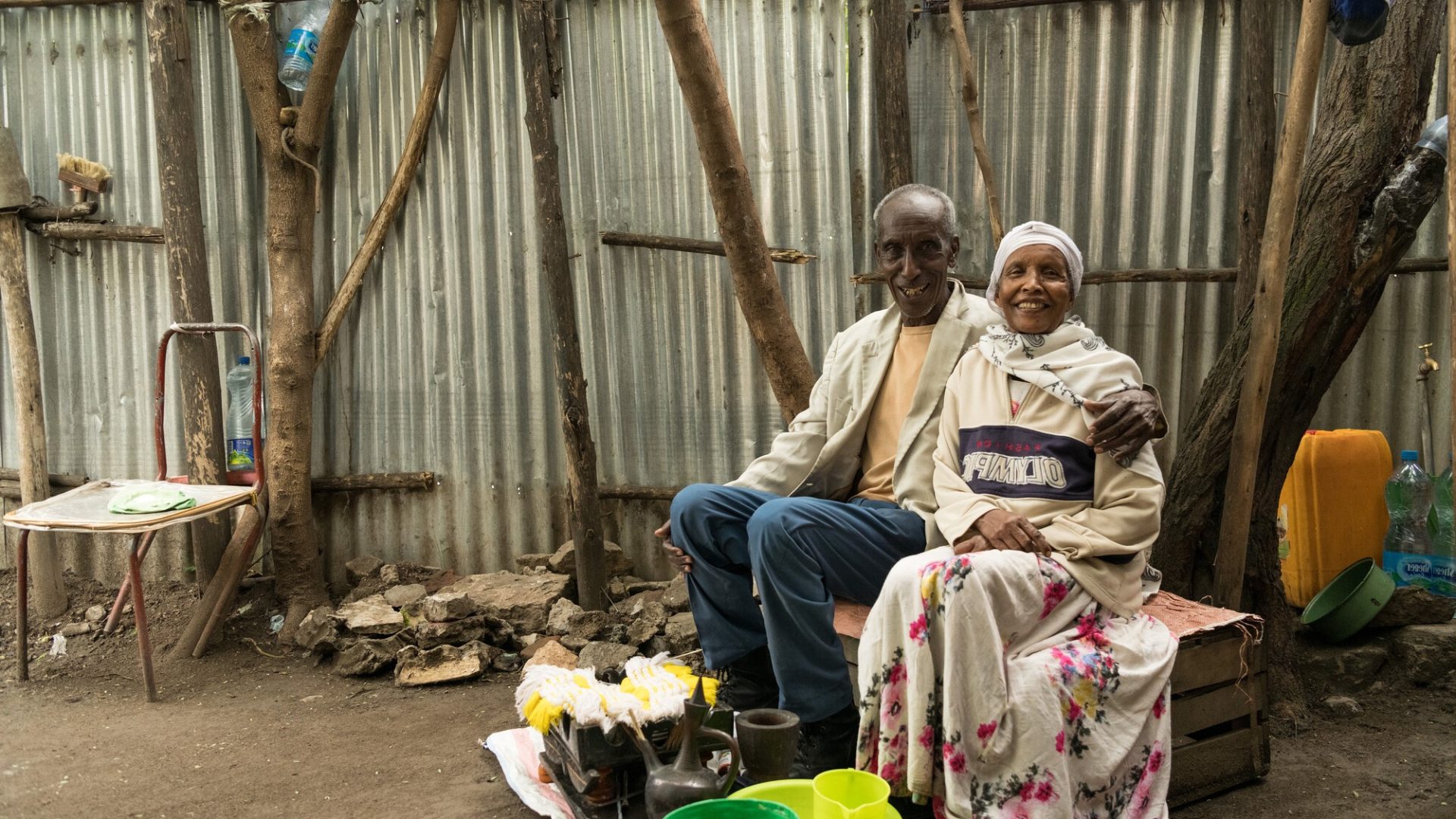Our research has thrown up the following key findings:
- While progress has been made, financial inclusion in Ethiopia remains low.
- Amongst older urban poor, account ownership is higher at formal financial institutions (compared to informal institutions). The main reason that deters older people from opening accounts is low income.
- The older urban poor practice a poor saving culture – less than 30 per cent save money at fornmal financial institutions.
- About 10 per cent of the older urban poor have borrowed money from someone outside their household.
- Older people could be excluded from accessing loans due to limited engagement in business, a lack of collateral, and low income.
- Nearly 76 per cent of the older urban poor use formal insurance products, including health insurance, life insurance, car insurance, and property insurance.
- Older people have relatively good access to mobile phones, but they have very limited access to mobile banking and mobile money services.
General access to financial services
There are several reasons that may deter people from opening accounts at formal financial institutions. For most older respondents (62.5 percent), the main reason was “I do not feel that my money is enough to save in a bank”.
Savings
Almost 28 per cent of older respondents had savings at formal financial institutions in the past 12 months. Existing evidence suggests that an increase in age significantly reduces formal savings. The reason may be that as people age, they become consumers instead of savers.
An interview with an older people’s association leader highlighted that the majority of the 80 members of the association do not have access to savings. He said: “Older people have limited knowledge about saving, limited financial resources, and a poor saving culture”.
Access to loans and credit
Access to loans and credit is essential for day-to-day economic activities and for the overall economic growth of a country. It is one of the fundamental indicators of financial inclusion.
In the last 12 months, 11.43 per cent of older respondents had access to loans. They borrowed money from someone outside their household. Banks are less willing to provide credit to older people because of their age, which limits their engagement in business and their lack of collateral to insure loans.


